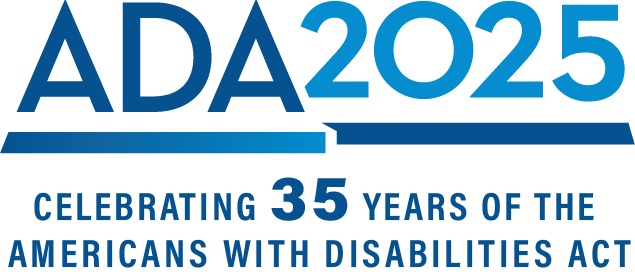A reasonable accommodation is any change to the hiring process, the job, the way the job is done, or the work environment that allows a person with a disability who is qualified to perform the job's essential functions to enjoy equal employment opportunities. Accommodations are considered “reasonable” if they do not create an undue hardship or a direct threat.
In other words, reasonable accommodations can be thought of as “productivity enhancers” that allow workers with disabilities to contribute their all, and employers to benefit from a broader talent pool that includes workers with different abilities. Reasonable accommodations are made to maximize the productivity of workers with disabilities; many of these accommodations can benefit all employees. For example, everyone can benefit from facility enhancements such as ramps, accessible restrooms, and ergonomic workstations. Contrary to popular belief, most reasonable accommodations involve little or no cost.
Reasonable accommodations can take many different forms. For example, an employer may provide employees with a flexible schedule, frequent breaks, or a place to sit when standing isn't necessary. Other common accommodations include:
- Providing important feedback in writing rather than verbally, or providing materials in Braille
- Providing a parking space near the employee entrance
- Allowing an employee’s service animal into the workspace
- Installing a ramp or modifying workstations to accommodate wheelchair users
- Purchasing software that magnifies the computer screen
- Providing sign language interpreters or closed captioning at meetings and events
Funded by the U.S. Department of Labor’s Office of Disability Employment Policy, the Job Accommodation Network (JAN) provides free, expert, and confidential guidance on workplace accommodations and disability employment issues. Working toward practical solutions that benefit both employer and employee, JAN helps people with disabilities enhance their employability. It shows employers how to capitalize on the value and talent that people with disabilities add to the workplace.
Read “What Is ‘Reasonable Accommodation’?” from the ACL/NIDILRR-funded ADA National Network.
In 2021, the New England ADA National Network Regional Center, part of the ADA National Network, developed a free web course called The Fair Housing Act, Section 504 and the ADA Web Course. This two-hour free web course untangles confusion amongst three disability rights laws: the ADA, the Fair Housing Act, and Section 504 of the Rehabilitation Act. This self-paced, free web course focuses on reasonable accommodations and reasonable modifications. It addresses the definition of disability, the differences between accommodations and modifications, documentation of disability that a housing provider may require, undue burden, fundamental alteration, and the request process.
In 2021, a NIDILRR-funded Disability and Rehabilitation Research Program grantee created a tool called Work ACCESS: The Workplace Accommodation Expert Support System. This tool is an easy-to-use workplace accommodation assessment system that helps employers and employees make more informed accommodation decisions. Specific capabilities of this system include, but are not limited to:
- Collecting information about a person’s functional limitations, work tasks, and personal/environmental factors, i.e., uses a shared workstation.
- Using decision trees developed through crowdsourcing to offer suggestions for appropriate accommodations.
- Displaying all possible accommodation matches that may include policy changes, assistive technology, facility modifications, strategies, and/or universal features.
- Recommending product types/features, rather than specific products, but also provides external links for more information.
- Cautioning users to consult an outside expert when an accommodation is more complex or has medical implications.

